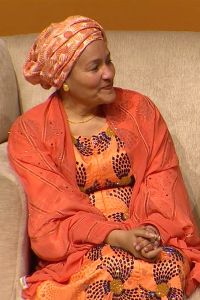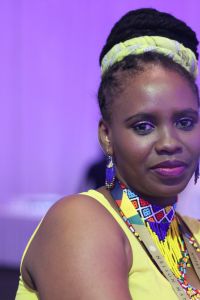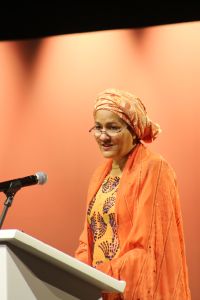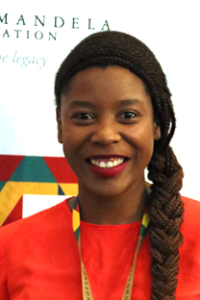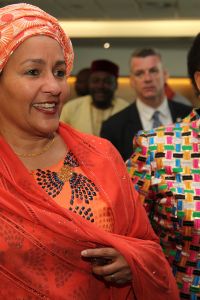Media Release: Women must take back the power
Date: 26 November 2017
From: Nelson Mandela Foundation
In a world where structural inequality and patriarchy remain entrenched, women should support each other, share information and push for what they need and want.
This was one of the key messages to come out of the 15th Nelson Mandela Annual Lecture post-lecture dialogue, hosted by the Nelson Mandela Foundation with the Soul City Institute at The Barn, Lookout Hill, Khayelitsha, today.
The five panellists at the intergenerational dialogue – themed “Beyond the talk, what do young women need to feel safe and valued in society” – included United Nations deputy secretary-general Amina Mohammed, who delivered the Annual Lecture in Cape Town yesterday, and Mandela’s widow, Graça Machel.
They were joined by Anne Githuku-Shongwe, representative for UN Women’s South Africa multi-country office, gender activist and master’s student Naledi Chirwa, and entrepreneur and economist Trudi Makhaya.
The panellists engaged in dialogue with young women from the community-based Rise Young Women’s Club, which aims to mobilise and inspire young women to participate in taking responsible action to shape their lives and communities.
Mohammed stressed that the young women were to lead the discussion, focusing on the “broader questions beyond the talk” – what should be done to make sure that women are safe and valued in society. This question was particularly pertinent in the light of the fact that, in sub-Saharan African, young women between 14 and 24 are four times more likely to be infected with HIV than their male counterparts of the same age.
Participants from Rise questioned how young women facing challenges in communities start a chain reaction, speak for themselves, and how they could get access to the information and other tools to empower themselves.
“The conversation has to start with you,” said Mohammed, adding that the United Nations had to ask itself how to hear the voice of networks such as Rise and connect it to actions and finance. “We need to make sure those resources can help to empower you to empower others.”
Addressing the Rise members, Machel said: “My suggestion is that next time the panel should be constituted by you – you should put across your aspirations, and we should be the ones to listen to you …”
She used the analogy of a powerful wave – which is the result of a lot of movement of water – to tell the young women, “The power is you … it’s not us.”
Commending the efforts of the club, she reflected on the violence that women face in communities and said that it was “hundreds of clubs like yours around the world that are effecting change”. The “secret” to making Khayelitsha safe was meeting, discussing issues, calling leaders and appealing to them to listen.
“You are the waves – don’t underestimate yourselves. You are exactly the solutions you are looking for,” she said.
Men never asked to be empowered – they just took power, said Githuku-Shongwe. “So you don’t want to wait for it to be given to you … get the skills to take it.” She said this could be done by building movements and using modern technology and social-media networks.
“You have a cellphone, you have the power and the tools to connect, she stressed, adding that options such as being able to “greylist” teachers demanding “sex for marks”.
Topics raised included that even within groups of women, sub-groups were discriminated against and that young black women were discouraged to be politically active.
Chirwa said, “You have to be politically active if you want real agency. Patriarchy wants to maintain the status quo.” She said that to disturb the norm was political. “We are not just voters – we can put each other in power.”
Femininity and masculinity were fluid roles, she said: “You can be one the one moment and other the next. We don’t need men telling us how to be women.”
Women are “completely excluded” in the economic sphere in South Africa, with the boardroom “a very masculine space,” said Makhaya. She called on women to support other women. The masculine world of finance was reluctant to back commercially sound products geared to women – such as modern, comfortable breast pumps, so it was up to successful women to take other women’s ideas and invest in them.
She argued that young women should never hesitate to question problems and issues in their own communities.
“Your circumstances ought not determine how you end up in life,” said Soul City Institute CEO Lebo Ramafoko, with Githuku-Shongwe reminding young women to take advantage of South African legal requirements for enterprise development – R635-billion rand is set aside for public procurement in the country’s budget, but barely three or four percent goes to women.
Mohammed concluded: “Don’t give up. We get tired, we get cynical. Just remember that your life is a journey and every single step you take is part of you strengthening what you do.”
